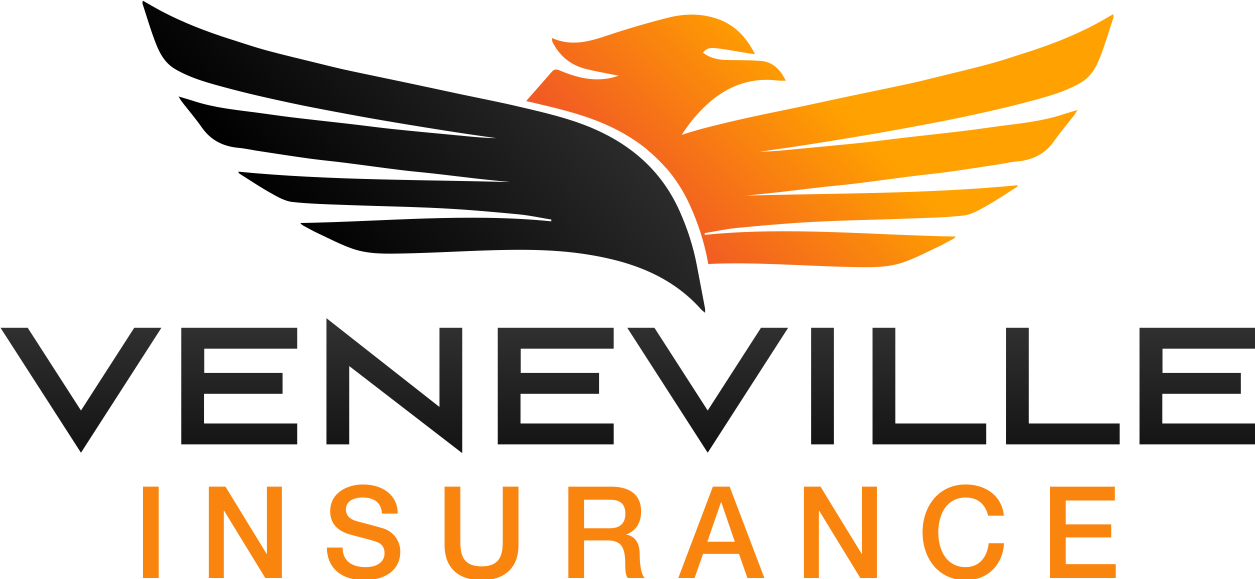Have you ever tried to read your insurance contract and felt like you were deciphering a secret code? You’re not alone. The truth is, insurance terms can be a headache, with words like premium, deductible, and coverage floating around without clear meaning. For many, buying insurance ultimately becomes an act of faith, signing documents they don’t fully comprehend.
Insurance is a powerful tool to protect what you’ve worked so hard for: your home, your auto, your health, and, most importantly, your family’s peace of mind. At Veneville Insurance, we know that understanding insurance terms isn’t just a good idea—it’s essential. It’s the first step to taking control of your financial decisions.
That’s why our team has created this definitive guide to help you feel fully in control of your policy. We break down the most important insurance terms in such a simple and clear way that, in the end, you’ll realize the jargon is just that: words. In other words, we give you the tools to know exactly what you’re buying, how your coverage works, and how you can protect yourself in the best possible way.
The pillars of an insurance contract: Key terms you should know
To begin, let’s break down the insurance terms that form the basis of any policy. We believe that understanding these concepts is essential.
Policy
Think of the policy as a contract. It’s the legal document that establishes the terms of the insurance between you (the insured) and the insurance company. The policy details which risks are covered, for how long, how much you must pay, and under what conditions. It’s the most essential document in the entire process.
Premium
The premium is the payment you make to the insurance company to keep your coverage active. It can be monthly, quarterly, or annually. The premium is calculated based on the risk you represent to the company: Do you have a clean driving record? Do you live in an area with a high incidence of hurricanes? The answer to these questions influences the cost of your premium. It’s the price for the peace of mind that insurance gives you.
Deductible
This is one of the insurance terms that confuses people the most. The deductible is the amount of money that you, as the insured, must pay out of your own pocket before the insurance company starts to cover the costs of a claim. For example, if you have a car accident with $5,000 in damages and your deductible is $500, you pay the first $500 and the insurance company covers the remaining $4,500. Choosing a high deductible generally means that your monthly premium will be lower, but you’ll have to pay more in case of a claim.
Coverage
Coverage refers to what your policy protects. It’s the list of risks or events for which the insurance company will pay a settlement. For example, a car insurance policy’s coverage can include collisions, theft, or vandalism damages. It’s essential to read this section carefully, because if something isn’t covered, the company isn’t going to pay for it. That’s why it’s important to understand each of the insurance terms.
Claim
A claim is the event that activates your policy’s coverage. It can be a car accident, a home fire, or a serious illness. When a claim occurs, you file a claim with your insurance company so they can compensate you as agreed upon in the policy.
Settlement
The settlement is the money the insurance company pays you to compensate for the losses you suffered in a claim. It’s the fulfillment of their promise.
Insurance terms for specific situations in Florida
Living in Florida has its own peculiarities, especially when it comes to insurance. Here, we explain some insurance terms that are very relevant in this state.
Auto insurance: Beyond the basics
- PIP (Personal Injury Protection): Personal Injury Protection Insurance, known as PIP, is mandatory in Florida. This coverage pays for your medical expenses (and those of your passengers) regardless of who was at fault in the accident. It is one of the features that make auto insurance in Florida different.
- SR-22 and FR-44: If you have had a serious traffic violation, such as driving under the influence or driving without insurance, the state of Florida may require you to have an SR-22 or FR-44 form. These are certificates that prove you have the minimum required auto coverage. They are not insurance policies, but proof that you are insured.
Home insurance: Hurricane season
- Flood Insurance: It is essential to understand that most home insurance policies in Florida do not cover flood damage. Therefore, it is advisable to purchase a separate policy through the National Flood Insurance Program (NFIP). Do not confuse flood insurance terms with hurricane insurance, as they are different.
- Hurricane Deductible: In Florida, it is common for home insurance policies to include a hurricane deductible, a separate and often higher deductible for damages caused by hurricanes. It is calculated as a percentage of the insured value of your home (for example, 2% or 5%).
A complete glossary: Other insurance terms that will help you
To leave no doubt, here is a broader list of insurance terms you will come across along the way.
- Insured: The person or entity protected by the policy.
- Beneficiary: The person who will receive the compensation payment, especially in life insurance.
- Insurance agent: A professional who helps you understand insurance terms, compare prices, and find the policy that best fits your needs.
- Full coverage: A term in auto insurance that generally combines collision, comprehensive, and liability coverage. It does not mean it covers “everything” without exception. It’s essential to ask which insurance terms are covered.
- Liability: coverage that pays for damages to other people or their property if you are at fault in an accident.
- Term life insurance: A type of life insurance that covers a specific period of time (e.g., 10, 20, or 30 years).
- Permanent life insurance: Life insurance that lasts a lifetime and also accumulates cash value you can use while alive.
- Reinsurance: Insurance that insurance companies buy from other companies to protect themselves against large losses.
- Provider network: The list of doctors, hospitals, and clinics covered by your health plan.
- Net premium: The cost of insurance excluding taxes or surcharges.
- Replacement cost: The cost to replace a damaged or destroyed item with a new one, without deducting depreciation.
- Actual Cash Value (ACV): The replacement cost of an item minus depreciation.
- Out-of-pocket expense: The amount of money you pay yourself for medical expenses, apart from premiums. It includes deductibles, copayments, and coinsurance.
- Copayment: A fixed payment you make each time you use a covered medical service (e.g., $20 for a doctor’s visit).
- Coinsurance: A percentage of the costs you must pay after meeting your deductible. For example, if your coinsurance is 20%, you pay 20% of the bill, and your insurance covers 80%.
Frequently asked questions
The insurance industry has its own technical and legal jargon. Often, these insurance terms are used to avoid ambiguities in contracts.
It depends. Liability coverage pays for damage to others, but not to your own vehicle. If you want to protect your auto against collisions or theft, you need additional coverage. It is essential to understand these insurance terms to avoid surprises.
Ask! It is your right as customer to understand every part of your contract. Don’t sign anything if you have doubts. A good insurance agent will be happy to take the time to explain everything to you in detail.
Final words
Now that you have a solid foundation to understand insurance terms, you can leave behind confusion and uncertainty. You will realize that paperwork doesn’t have to be intimidating and that you have the power to take control of your financial future. The key is not to be afraid to ask questions and, more importantly, to find an insurance agency that takes the time to explain everything with patience and transparency.
Remember that a well-chosen protection plan is one of the best investments you can make. It is more than just a contract; it is a shield that protects your assets and, more importantly, your family’s peace of mind. It safeguards you from life’s unexpected events and allows you to live with fewer worries, knowing you are prepared for anything. Understanding insurance terms is the first step to achieving that peace of mind.
Our team of experts is dedicated to providing the peace of mind you deserve. We guide each client through the insurance selection process, ensuring every policy perfectly fits their needs and budget. Our goal is to build lasting relationships based on trust and service, because we know good insurance is much more than a contract: it is a promise of protection and support.
All our posts are referential
Our policies and their coverage are individual and personalized to each specific situation.
At Veneville Insurance, we’ll happily offer you multiple insurance options.



















